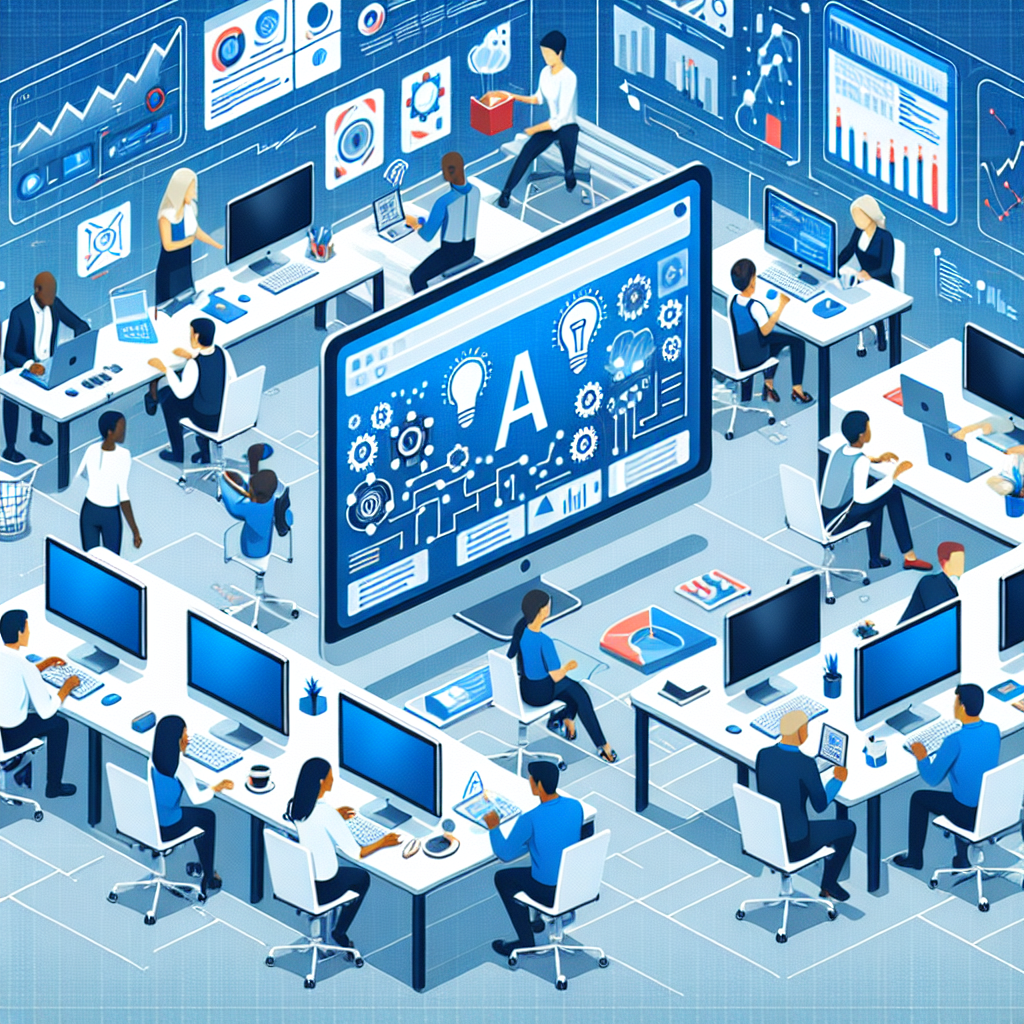The Benefits of Using AI Tools in HR
In today’s fast-paced and technology-driven world, the role of AI tools in HR is becoming increasingly important. These tools are revolutionizing the way human resource departments operate by streamlining processes, improving efficiency, and enhancing decision-making. From recruitment and onboarding to employee training and performance management, AI tools are transforming the HR landscape in numerous ways. In this article, we will explore the benefits of using AI tools in HR and how they can help organizations achieve their strategic goals.
1. Recruitment and Candidate Screening
One of the key benefits of using AI tools in HR is their ability to streamline the recruitment process. AI-powered recruitment platforms can help HR professionals sift through large volumes of resumes, identify top candidates, and match them to suitable job openings. These tools use algorithms to analyze resumes, assess candidates’ skills and qualifications, and even predict their likelihood of success in a role. By automating the initial screening process, AI tools free up HR professionals to focus on more strategic aspects of recruitment, such as building relationships with candidates and conducting interviews.
2. Employee Onboarding and Training
AI tools can also play a vital role in the onboarding and training of new employees. Chatbots, for example, can provide new hires with instant access to information about company policies, procedures, and benefits. They can also answer common questions and guide employees through the onboarding process. AI-powered training platforms, on the other hand, can deliver personalized learning experiences to employees based on their individual needs and preferences. By using data analytics and machine learning algorithms, these platforms can recommend relevant training modules, track employees’ progress, and provide real-time feedback.
3. Performance Management and Feedback
AI tools can help HR professionals improve performance management and feedback processes within organizations. For example, AI-powered performance management systems can track employees’ performance metrics, identify areas for improvement, and provide managers with insights into their team members’ strengths and weaknesses. These tools can also facilitate continuous feedback by enabling employees to receive feedback from multiple sources, such as peers, managers, and customers. By automating the feedback process and providing real-time insights, AI tools can help organizations improve employee engagement, productivity, and retention.
4. Diversity and Inclusion
AI tools can also support diversity and inclusion initiatives within organizations. By using data analytics and machine learning algorithms, these tools can help HR professionals identify and address biases in recruitment, performance evaluations, and promotion decisions. For example, AI-powered recruitment platforms can help organizations remove gender and racial bias from job postings, screen candidates based on skills and qualifications rather than demographic information, and ensure equal opportunities for all applicants. By promoting diversity and inclusion, AI tools can help organizations build a more inclusive and equitable workplace culture.
5. Compliance and Risk Management
AI tools can also help organizations improve compliance with labor laws, regulations, and industry standards. For example, AI-powered compliance platforms can monitor employee data, identify potential risks and violations, and provide recommendations for mitigating these risks. These tools can also streamline compliance reporting, automate audits, and ensure that organizations adhere to legal requirements. By using AI tools to manage compliance and risk, HR professionals can reduce the likelihood of legal disputes, fines, and reputational damage.
6. Employee Engagement and Well-being
AI tools can also play a key role in improving employee engagement and well-being within organizations. For example, AI-powered engagement platforms can analyze employee feedback, sentiment, and behavior to identify trends and patterns that impact engagement levels. These tools can also provide personalized recommendations for improving employee satisfaction, motivation, and productivity. AI-powered well-being platforms, on the other hand, can help employees monitor and manage their physical and mental health, access resources and support services, and maintain a healthy work-life balance. By using AI tools to enhance employee engagement and well-being, organizations can create a more positive and productive work environment.
FAQs
Q: Are AI tools in HR replacing human professionals?
A: While AI tools in HR can automate routine tasks and streamline processes, they are not designed to replace human professionals. Instead, AI tools are intended to augment the capabilities of HR professionals by providing them with data-driven insights, recommendations, and support. Human professionals will continue to play a vital role in areas such as relationship-building, decision-making, and strategic planning.
Q: How can organizations ensure the ethical use of AI tools in HR?
A: Organizations can ensure the ethical use of AI tools in HR by establishing clear guidelines, policies, and safeguards for their implementation. This includes conducting regular audits of AI algorithms, ensuring transparency in decision-making processes, and addressing bias and discrimination in AI systems. Organizations should also prioritize data privacy, security, and compliance with legal and regulatory requirements when using AI tools in HR.
Q: What are the potential risks of using AI tools in HR?
A: Some potential risks of using AI tools in HR include bias and discrimination, data privacy and security concerns, and job displacement. Organizations should be mindful of these risks and take proactive measures to mitigate them. This includes conducting regular audits of AI algorithms, providing training and support for employees using AI tools, and ensuring compliance with legal and ethical standards.
In conclusion, AI tools in HR offer numerous benefits for organizations, including streamlining recruitment processes, enhancing employee training and performance management, promoting diversity and inclusion, improving compliance and risk management, and enhancing employee engagement and well-being. By leveraging the power of AI, organizations can achieve their strategic goals, drive innovation, and create a more efficient and effective HR function. However, it is important for organizations to use AI tools responsibly, ethically, and transparently to maximize their potential benefits and minimize potential risks.

